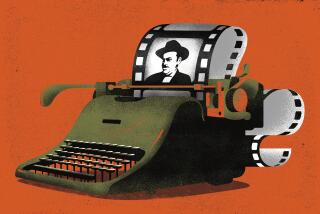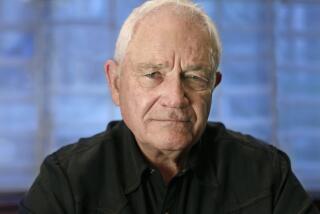Roger Ebert: First citizen critic and father to us all
It was fitting that Roger Ebert’s death caused Twitter to explode Thursday with film and TV critics, cultural recappers and entertainment bloggers sending their best wishes across the coded universe to mark, and perhaps aid, the passing of the iconic film critic. If any presence might cling to the those particular digital ethers, a pinging echo with one final message, it would be Ebert.
The first citizen critic, making heady discourse available even to those of us who would never visit the Algonquin or walk the halls of the New Yorker, boldly leveraging the technology at hand to broaden his impact without diminishing his integrity, he was, in many ways, father to us all.
Some found it alarming that early reports on the Web listed Ebert’s more than 800,000 Twitter followers before they mentioned his Pulitzer Prize, but that too captured Ebert’s unique dichotomy. With a degree in journalism rather than film, and a background in feature writing rather than criticism or commentary, he was named film critic at the Chicago Sun-Times in the hopes that he could bring a young man’s perspective to the changing nature of cinema. He won a Pulitzer in 1975 (the same year Doonesbury’s Gary Trudeau won his), making it clear he was good; later that year, he proved he was brilliant.
RELATED: Fans, celebs react to Ebert’s death
By agreeing to the unheard-of proposition of co-hosting a local public broadcasting show devoted to film reviews (film criticism on television! someone hand Ms. Kael her smelling salts!) Ebert and his then-hometown rival Gene Siskel became early pioneers of the multimedia, hybrid platforming that would eventually give us YouTube and Twitter, original programming on Netflix and every cross-linking film blog and TV recap page that ever sent you down the www wormhole to land at the feet of Ingmar Bergman or Ron Swanson as the Grouchy Cat.
More important than the form though was the function. Ebert helped release the critical voice from its ivory Eastern Seaboard skyscraper. Having overcome their initial reluctance to share anything but that reluctance, he and Siskel cleared a floor space for the revolutionary idea of criticism as conversation rather than edict -- they disagreed, often strongly but rarely dismissively. They were willing to expose the tender white underbelly of their profession -- it all comes down to opinion -- in an effort to illuminate, and popularize, the importance of critical thinking itself, to show how it was separate from simple reaction.
Yes, it all came down to the famous thumbs, which many critics of the time found reductive and schtickish, but opposable thumbs are what separate us from other primates and the point of the show was what led up to the final image. Even in a short amount of time, each man was able to articulate one brilliant bit of brain circuitry that led to his final decision. Criticism has existed as long as art because people want to truly understand what they are experiencing; good criticism can reach places its subject matter cannot. Siskel and Ebert brought that process into our living rooms. After Siskel’s death in 1999, Ebert brought it into the digital age, literally and psychologically.
PHOTOS: Roger Ebert - Career in Pictures
Unlike other important film critics of the late 20th century, he was not afraid to laud the emotional reaction to film, something every viewer could experience, but he didn’t pander to it. Instead, he followed his heart back up to his intellect, and took us with him, showing us, often precisely, why this image or those words did more than just trigger a dopamine drop and why that image and these words did not. He did not see enthusiasm as shorthand for stupid, did not use his often scathing wit to go for the zinger at the expense of the insight. He was witty but never mean, dry but never cynical and when he loved, he loved loudly.
More important -- most important -- he managed to die without ever becoming old. He aged, of course, and endured a horror of physical disintegration that seemed to come from a vengeful universe -- a critic literally losing his ability to speak is the sort of irony preposterous anywhere but real life. But his voice was not limited to the physical plane and he never stopped loving what he did, or figuring out how to do it differently, blogging and tweeting until the day he died.
He even tried to resurrect his old show a few years ago, lending his name and his prosthetically enhanced image to a new version of “At the Movies.” It didn’t work. Siskel and Ebert may have made smart but accessible criticism look easy, but it isn’t. And times have changed. In a world flooded with the sort of debate and cross-talk Ebert helped kickstart all those years ago, the sight of a couple of critics sitting around talking doesn’t have quite the same impact. Not every force can survive the vagaries of time.
But he did.
ALSO:
Remembrance: Film’s hero to the end
Five ways Roger Ebert changed film journalism
PHOTOS, VIDEOS & MORE:
PHOTOS: Behind the scenes of ‘Downton Abbey’
VIDEO: Winter TV preview
PHOTOS: Violence in TV shows
More to Read
The complete guide to home viewing
Get Screen Gab for everything about the TV shows and streaming movies everyone’s talking about.
You may occasionally receive promotional content from the Los Angeles Times.







